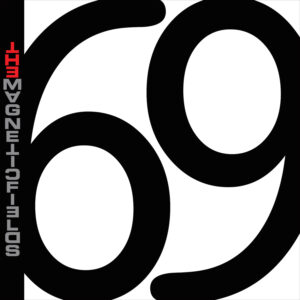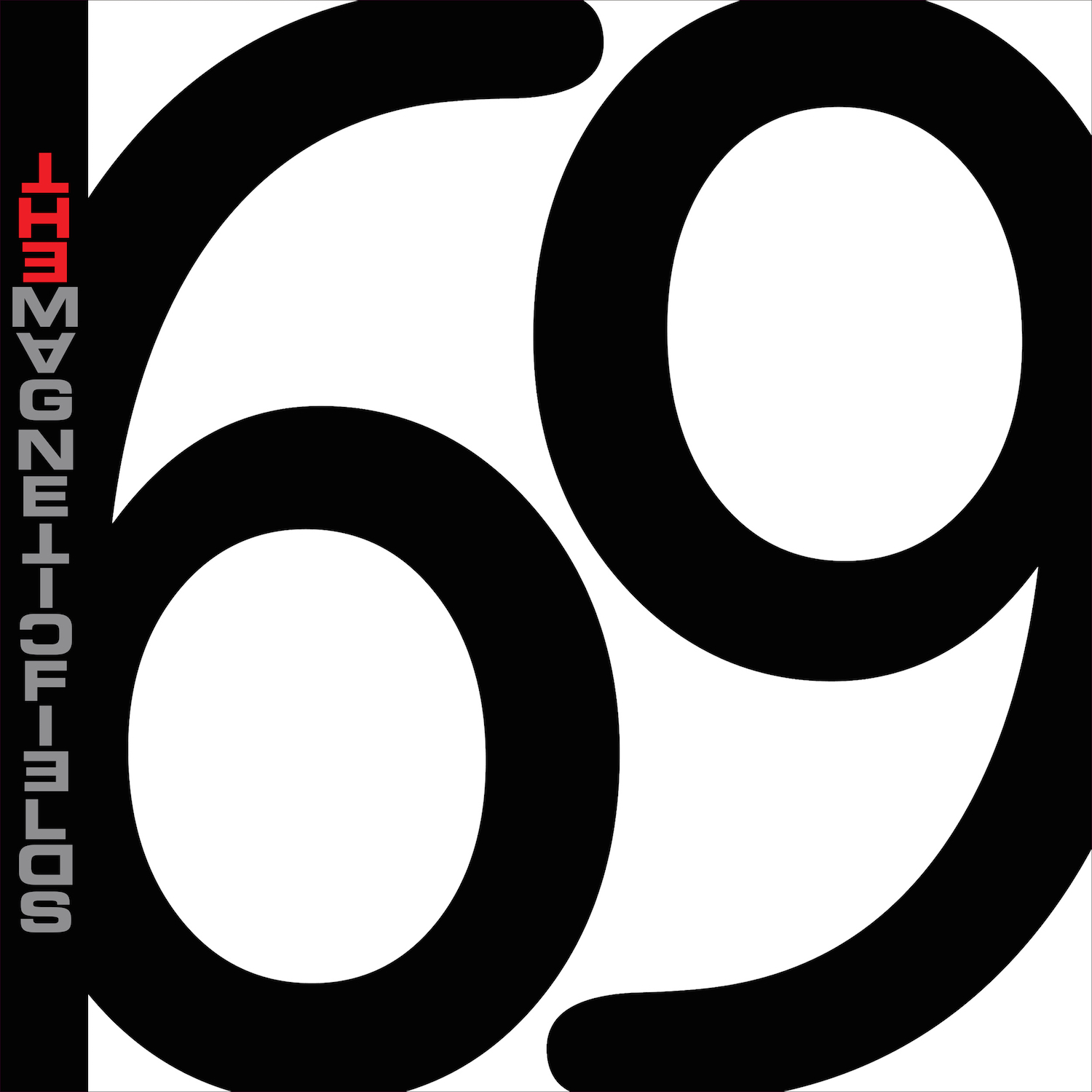 The Magnetic Fields
The Magnetic Fields
69 Love Songs [vinyl reissue]
MERGE
Stephin Merritt—The Magnetic Fields frontman and composer of 69 Love Songs—imagined the 1999 three-volume album as a theatrical revue, with drag queens and audience participation. But when it came out, there was no set dressing, no costumes, no curtains. We were alone with sixty-nine love songs—a tall order for anyone hoping to have even a sliver of heart left by the time the last volume ends.
This is a collection of “love song” songs. They’re not songs Merritt wrote about love; they’re songs about love songs, overflowing with clichés and tired metaphors. In one of the album’s best moments, Claudia Gonson sings, “You know you enthrall me / And yet you don’t call me / It’s making me blue / Pantone 292.” Paired with the music of The Magnetic Fields—which includes cello, banjo, ukulele, autoharp, and flute, among other fanciful instruments—this perfect exaggeration is eminently listenable.
As satirical as the album is, as evidenced by its cheeky title, listen to 69 Love Songs in public at your own risk. During “Love Is Like Jazz,” we’re in on the joke, but we’re caught off guard by the honesty of “Love Is Like a Bottle of Gin.” And even though “Busby Berkeley Dreams” may have been written in jest, the emotion it evokes is quite real. Good thing you have to stay home to listen to records.
There wouldn’t be a vinyl release if there were much filler, but with sixty-nine songs, it’s inevitable; the disposable “Fido, Your Leash Is Too Long” presumably exists so that you can put yourself back together immediately after “The Book of Love.” The only new material included is a twenty-four-page booklet featuring an extended interview with Merritt by Daniel Handler (a.k.a. Lemony Snicket), who played accordion on the album. Handler and Merritt’s meandering discussion—in which they take on everything from hated restaurants and pots of tea to song inspirations and Merritt’s mother’s love of Georgia O’Keeffe—provides listeners and fans with a new road map for 69 Love Songs, which Merritt describes simply as “a large collection of singles.”
Clichés are clichés for a reason, so where’s the space between a fake love song and a real one? On 69 Love Songs, it’s often clear, but the places where it isn’t make this an essential set of throwaway love songs.







